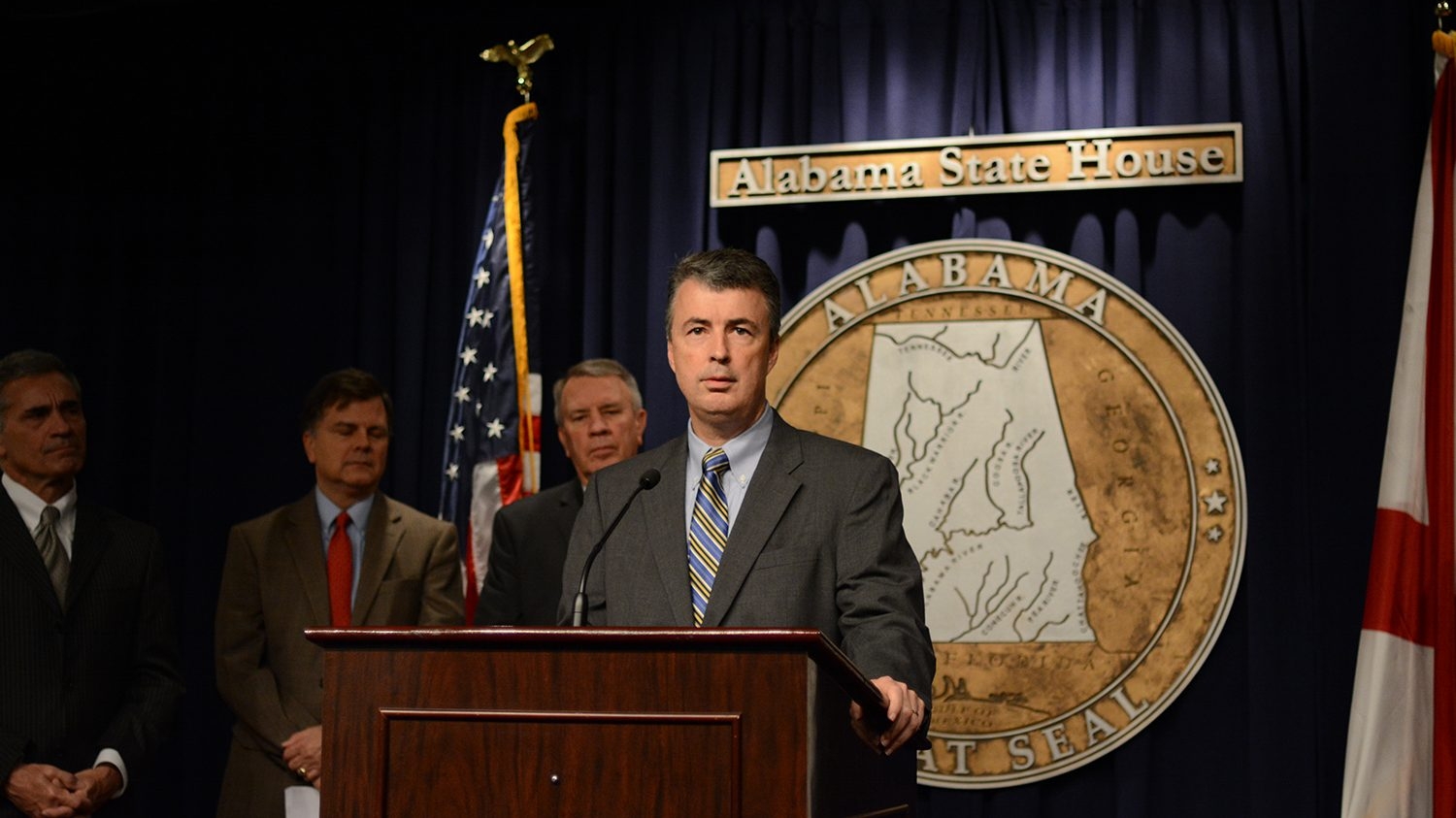By Bill Britt
Alabama Political Reporter
The passage of HB317 by the Alabama House of Representatives could easily be labeled legislation by deception. Not that lawmakers were lying, but rather they were on the receiving end of a lie.
In a press statement on Thursday, appointed Attorney General Steve Marshall inadvertently confirmed how he and Commerce Secretary Greg Canfield conspired to deceive the state’s House of Representatives and the public to please some of the state’s power elites. Both Marshall and Canfield were appointed to their posts by former Gov. Robert Bentley, who resigned in the midst of scandal.
The pair misleads lawmakers by adding three words to HB317 that would weaponize portions of the legislation. Sold to lawmakers as an ethics clarification and jobs bill, HB317, also known as The Alabama Jobs Enhancement Act, passed the House by an overwhelming majority.
Analysis | Are Hubbard-Riley emails key to answering the mystery surrounding HB317?
Marshall convinced House leadership that amendments to the bill were the work product of white-collar crime prosecutor Matt Hart and his team, according to ranking Republicans in the House.
That Hart’s team helped craft the bill is facially true, except the duo failed to say that they added to the language — something Marshall unconsciously admitted in his Thursday press statement. In his statement, Marshall said, “I opposed HB317 in its original form. The ethics-related language in that bill altered the definition of lobbying in a manner that, I believe, was far too broad. I requested that the bill be halted to give me the opportunity to work with Secretary Canfield towards a proposal that was more in line with the approach to economic development found in the comprehensive ethics reform bill that my Office crafted over the course of the last two years and that Senator Marsh filed as SB343.”
Marshall says he opposed the original bill as written, and he asked that it be halted until he could meet with Canfield. He also says when he met with Canfield, he brought along a “top official from my corruptions unit handled the negotiations for my Office,” which is assumed to be Matt Hart.
House Republicans speaking on background tell APR that they were led to believe Hart had personally written and approved the language. However, Hart would not confirm this information. Several lawmakers tried to contact Hart before voting on the measure to make sure he had in fact authored the amended language. Hart would not respond to their questions, according to Democrats and Republicans who spoke to him directly.
In his press release, Marshall claims he met with Canfield to amended HB317 so it was, “more in line with the approach to economic development found in the comprehensive ethics reform bill that my Office crafted over the course of the last two years and that Senator Marsh filed as SB343.”
The language Marshall was referring to is found on page 10 of SB343, which reads:
ECONOMIC DEVELOPMENT PROFESSIONAL.
A person employed full-time to advance specific, good-faith economic development or trade promotion projects or related objectives for his or her employer. The term does not include public officials, employees of lobbyists, or persons who are otherwise lobbyists.
Marshall said, “The amendment provides a narrowly-drawn exemption for full-time economic development professionals.” Take note — he says, “ full-time economic development professionals.”
Watch carefully for the trick.
The language found in HB317 reads:
For purposes of this section, an economic development professional is a person employed full-time to advance specific, good faith economic development or trade promotion projects or related objectives for his or her employer, a professional services entity, or a chamber of commerce or similar nonprofit economic development organization in the State of Alabama.
The term also includes a person who works less than full-time for any of these entities and is pre-certified by the executive director of the Ethics Commission or obtains an advisory opinion from the Ethics Commission that the person qualifies as an economic development professional. The term does not include public officials, public employees, employees of lobbyists, or persons who are otherwise lobbyists.
In his press statement, Marshall says it was for full-time economic development professionals. The language in the bill added, “less than full-time,” which was never part of the legislation written by the attorney general’s team.
There is a glaring difference in the two sections of code. In HB317, Marshall and Canfield added a new class of economic development professional that is not in the bill that was drafted by Marshall’s office and sponsored by Marsh. The addition of a “less than full-time” economic development professional is where the potential for corruption lies, and Marshall and Canfield know it.



















































